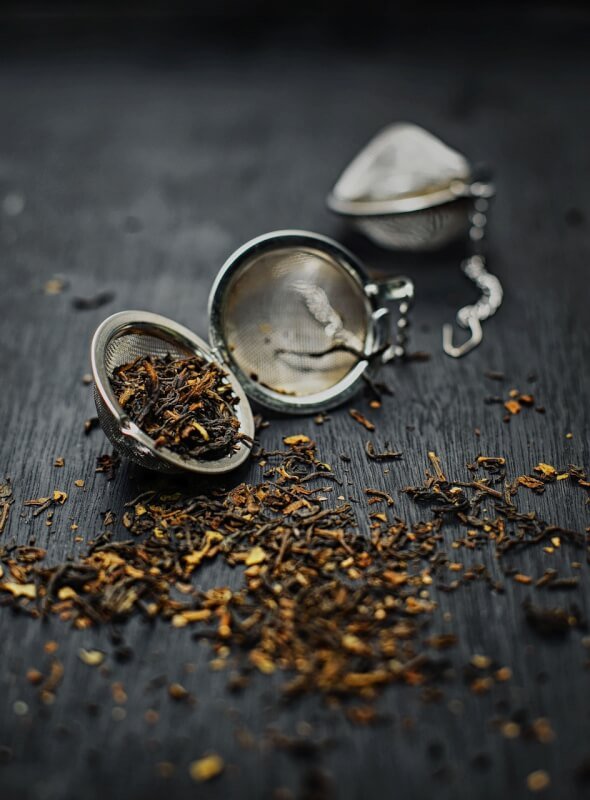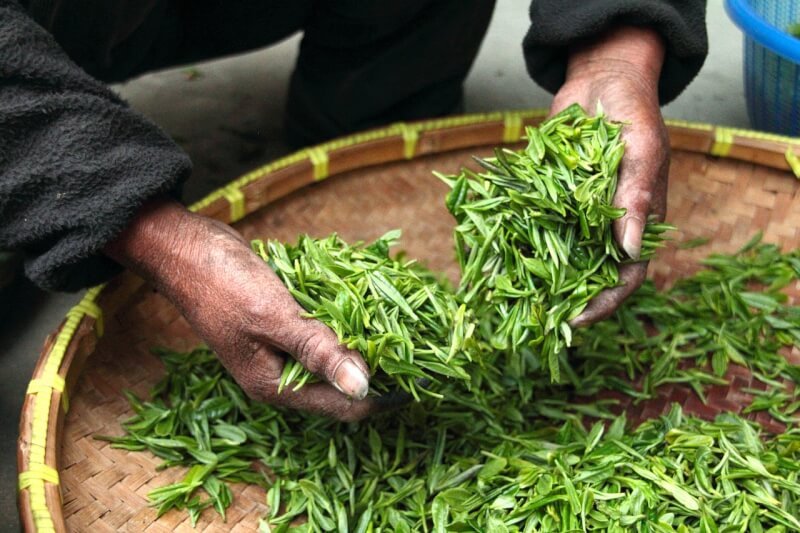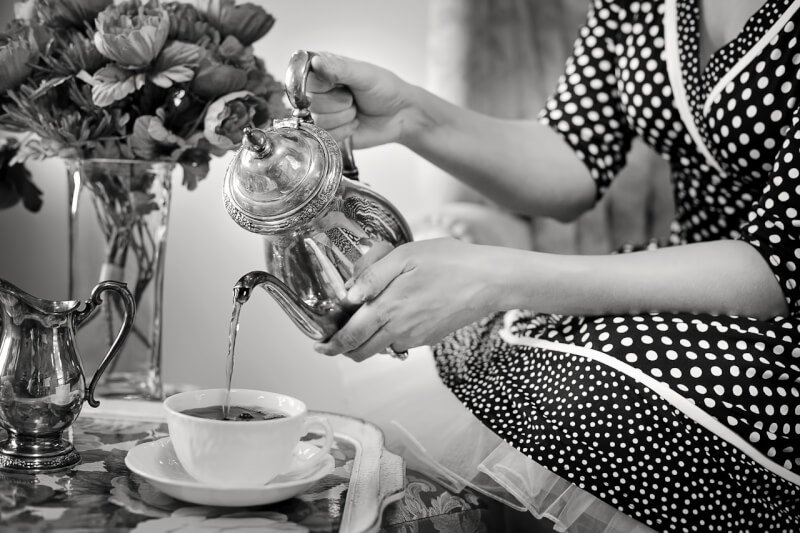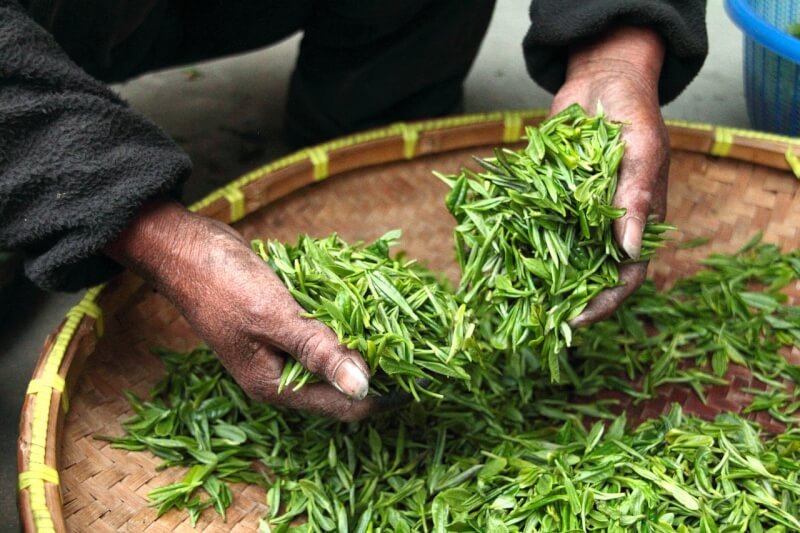Have you ever wondered what sets specialty tea apart from regular tea? The world of tea can be vast and confusing, with various terms and labels. In this article, we will explore the key distinctions between specialty tea and its more common counterpart. Whether you’re a tea enthusiast or just starting your tea journey, understanding the differences will allow you to appreciate the nuances of specialty tea and make informed choices about your brew. So, let’s uncover the unique characteristics that make specialty tea truly special.

Origin of Specialty Tea
History of specialty tea
Specialty tea has a rich and fascinating history that dates back thousands of years. The origins of tea can be traced back to ancient China, where it was first discovered and cultivated. The history of specialty tea can be divided into different eras, each marked by significant developments in the cultivation, processing, and consumption of tea. From its humble beginnings as a medicinal beverage to its renowned status as a symbol of elegance and refinement, specialty tea has shaped cultures and traditions around the world.
Traditional cultivation of specialty tea
The cultivation of specialty tea is an art that requires careful attention to every detail, from the selection of the tea plant to the nurturing of the soil and climate conditions. Traditional methods of growing specialty tea often involve organic practices, ensuring the highest quality leaves are harvested. Tea gardens are meticulously maintained, providing the perfect environment for the tea plants to thrive. The farmers’ expertise and knowledge are passed down through generations, ensuring the preservation of traditional cultivation techniques.
Notable producing regions
Specialty tea is produced in various regions around the world, with each region possessing unique characteristics that contribute to the flavors and qualities of their teas. Some of the most notable producing regions include China, Japan, India, Sri Lanka, and Taiwan. China, being the birthplace of tea, has a long-standing reputation for producing exceptional specialty teas. Japan is renowned for its green teas, while India is known for its diverse range of teas, including Darjeeling and Assam. Sri Lanka, or Ceylon, is famous for its black teas, and Taiwan is celebrated for its oolong teas.
Types of Specialty Tea
Green specialty tea
Green tea is one of the most popular types of specialty tea, known for its vibrant green color and refreshing flavor. It undergoes minimal oxidation during processing, preserving its natural antioxidants and health benefits. Green specialty tea is characterized by its grassy, vegetal, and sometimes nutty flavors. From the delicate and light taste of Japanese Sencha to the bold and robust flavors of Chinese Dragonwell, green specialty tea offers a wide range of options to suit different preferences.
Black specialty tea
Black tea is a fully oxidized tea that is known for its rich and robust flavor profile. It is often favored for its boldness and depth, making it a perfect choice for those who enjoy a stronger cup of tea. Black specialty tea can vary in taste, ranging from malty and robust to fruity and floral. Popular varieties include China’s Keemun and Darjeeling from India, both known for their unique and distinct flavors.
White specialty tea
White tea is the least processed of all teas, with minimal oxidation and handling. It is known for its delicate flavor and subtle sweetness. The leaves are harvested when they are young and covered in fine white hairs, giving them a silver or white appearance. White specialty tea offers a light and refreshing taste, with flavors that are often described as floral, fruity, and slightly sweet. Silver Needle and Bai Mu Dan are among the well-known varieties of white tea.
Oolong specialty tea
Oolong tea is semi-oxidized, falling between green and black tea in terms of processing. It offers a diverse range of flavors and aromas, often described as complex and full-bodied. Oolong specialty tea can range from lightly oxidized teas with a floral and fruity profile to heavily oxidized teas with a more roasted and earthy taste. Popular oolong teas include Taiwan’s High Mountain Oolong and China’s Tie Guan Yin.
Herbal specialty tea
Herbal teas, also known as tisanes, are not technically teas as they are not derived from the Camellia sinensis plant. Instead, they are made from a variety of herbs, flowers, and fruits. Herbal specialty teas offer a wide range of flavors and health benefits. From soothing chamomile and invigorating peppermint to tangy hibiscus and spiced chai, herbal specialty teas provide a diverse and caffeine-free alternative to traditional teas.

Processing Techniques
Minimal processing
Specialty teas are often minimally processed, allowing the leaves to retain their natural flavors and health benefits. Minimal processing involves careful plucking, with only the finest buds and leaves selected. The leaves are then gently withered, often in natural sunlight, to reduce moisture content. After withering, the leaves may be rolled, shaped, or twisted, depending on the desired style of tea.
Handcrafted production
Many specialty teas are produced using traditional, handcrafted methods. Skilled tea artisans carefully process the leaves, often using manual techniques such as hand rolling, twisting, or shaping. Handcrafted production allows for greater attention to detail and ensures that each leaf is treated with care, resulting in a higher quality tea with unique flavor profiles.
Natural and organic methods
Specialty teas are often produced using natural and organic methods, minimizing the use of synthetic chemicals and promoting a healthier environment. Organic tea cultivation involves using natural fertilizers, pest control methods, and sustainable farming practices. These techniques not only contribute to the overall quality of the tea but also ensure the sustainability of tea production for future generations.
Flavor Profiles
Unique taste characteristics
Specialty teas are prized for their unique taste characteristics, with each type of tea offering distinct flavors and aromas. From the crisp and grassy notes of green tea to the rich and malty undertones of black tea, specialty teas encompass a wide range of flavor profiles. The terroir, processing techniques, and tea cultivars all contribute to the unique taste characteristics found in specialty teas.
Complex and nuanced flavors
One of the hallmarks of specialty tea is its complexity and nuance. The flavors and aromas in specialty teas delve beyond a simple taste, offering layers of subtlety and depth. The nuanced flavors can range from floral and fruity to earthy and nutty, providing a multi-dimensional sensory experience for tea enthusiasts.
Delicate and subtle notes
Specialty teas often exhibit delicate and subtle flavor notes that are appreciated by connoisseurs. These delicate nuances can include hints of jasmine, orchid, honey, or even mineral undertones. The delicate notes add a sophisticated and refined quality to specialty teas, elevating the overall drinking experience.

Quality and Grading Standards
Strict grading systems
Specialty teas are subject to strict grading systems that ensure the highest quality standards are met. These grading systems evaluate various factors such as leaf appearance, aroma, liquor color, and taste. Tea leaves are categorized into different grades, with higher grades indicating superior quality and finer attributes. Grading systems vary across different tea-producing regions, with some using numbered scales and others using labels such as “FTGFOP” (Finest Tippy Golden Flowery Orange Pekoe) or “SFTGFOP” (Special Finest Tippy Golden Flowery Orange Pekoe).
High-quality leaves and buds
Specialty teas are made from high-quality leaves and buds, often consisting of young and tender leaves that are carefully plucked by skilled tea pickers. These leaves and buds possess the optimal balance of flavors and nutrients, contributing to the overall quality of the tea. The hand-picked leaves are sorted and processed with great care to ensure that only the best leaves are used in the final product.
Limited production and exclusivity
The production of specialty tea is often limited, making it a sought-after and exclusive beverage. The finest specialty teas are crafted in small quantities, with a focus on quality over quantity. This limited production adds to the allure and prestige of specialty teas, making them highly valued among tea enthusiasts and collectors.
Specialty Tea Blends
Artistic and creative blends
Specialty tea blends offer a canvas for tea artisans to showcase their creativity and expertise. These blends often combine different teas, herbs, spices, and flowers to create unique flavor profiles and aromatic compositions. The blending process requires skill and precision, as the individual characteristics of each component must harmonize to create a balanced and harmonious blend.
Balancing flavors and aromas
Tea blending is an art form that involves balancing flavors, aromas, and textures. Blends can combine various types of specialty teas to create a well-rounded cup, enhancing the desirable qualities of each tea. Whether it’s combining a light and floral white tea with a robust black tea or infusing herbs and fruits with green tea, blending specialty teas allows for endless possibilities and a personalized tea experience.
Heritage and cultural influences
Tea blending is often influenced by heritage and cultural traditions, with different regions having their own unique blends and flavor combinations. For example, Masala Chai in India blends black tea with aromatic spices like cardamom, cinnamon, and cloves, creating a bold and flavorful beverage. Moroccan Mint tea combines green tea with fresh mint leaves, capturing the essence of Moroccan hospitality. These blends not only offer a diverse range of flavors but also serve as a reflection of cultural customs and traditions.
Health Benefits
Rich in antioxidants
Specialty teas are known for their high antioxidant content, which helps combat the damaging effects of free radicals in the body. Antioxidants in tea, such as catechins and flavonoids, have been linked to various health benefits, including reduced risk of chronic diseases, improved heart health, and enhanced cellular function. By incorporating specialty teas into your daily routine, you can support overall well-being and promote a healthy lifestyle.
Promotes digestion and metabolism
Certain specialty teas, such as green and herbal teas, are revered for their digestive properties. They can help alleviate digestion-related issues such as bloating and indigestion, allowing for improved gut health. Additionally, specialty teas have been shown to boost metabolism, aiding in weight management and overall metabolic function.
Boosts immune system
Many specialty teas are rich in vitamins, minerals, and antioxidants that can strengthen the immune system. These teas provide a natural boost to the body’s defense mechanisms, helping to prevent common illnesses and infections. Whether it’s the vitamin C-rich herbal teas or the immune-boosting properties of green tea, incorporating specialty teas into your routine can support a healthy immune system.
Provides relaxation and stress relief
The act of brewing and enjoying a cup of specialty tea has long been synonymous with relaxation and stress relief. Specialty teas, such as chamomile or lavender blends, have calming properties that can help promote relaxation and aid in sleep. The ritualistic nature of tea preparation and savoring the aroma and flavors can provide a soothing and comforting experience, allowing you to unwind and find serenity in the midst of a busy day.
Brewing Techniques
Varied steeping times and temperatures
Different specialty teas require specific steeping times and temperatures to bring out their optimal flavors and aromas. Green teas, for example, are often brewed at lower temperatures (around 160-180°F) for short durations (1-2 minutes) to preserve their delicate flavors. On the other hand, black teas are typically steeped at higher temperatures (around 200-212°F) for longer periods (3-5 minutes) to extract their full-bodied flavors. The varied brewing techniques allow tea enthusiasts to customize their experience and tailor the tea to their preferences.
Specialized teaware and accessories
To fully appreciate the flavors and aromas of specialty teas, specialized teaware and accessories can enhance the brewing experience. Teapots, tea infusers, and cups designed specifically for different types of tea can make a significant difference in taste and presentation. For example, gongfu-style teaware is commonly used for brewing oolong teas, allowing for multiple short steeps to extract the tea’s complexities fully. Investing in quality teaware can elevate the enjoyment of specialty teas and further immerse you in the tea-drinking experience.
Consciousness of infusion methods
The infusion method, often referred to as “tea ceremony,” involves a mindful and intentional process of preparing tea. This can include specific movements, utensils, and gestures that contribute to the overall tea-drinking experience. The conscious infusion methods cultivate a sense of tranquility and appreciation for the tea, transforming a simple act into a meditative practice. Whether it’s the Japanese tea ceremony or the Gongfu tea ceremony in China, these rituals pay homage to the tradition and cultural significance of specialty teas.
Sustainability and Ethical Considerations
Environmentally conscious production
The production of specialty teas often involves environmentally conscious practices aimed at minimizing the impact on the ecosystem. Many tea gardens prioritize organic cultivation methods, avoiding the use of synthetic pesticides and fertilizers. Sustainable farming techniques, such as natural pest control and water conservation, are employed to protect the biodiversity of tea-growing regions. By choosing specialty teas produced in an environmentally conscious manner, you can enjoy your cup of tea with the knowledge that it was produced with care for the earth.
Supporting fair trade practices
Fair trade certification ensures that tea farmers and workers receive fair wages and are provided with safe working conditions. Specialty teas that bear the fair trade label support fair trade practices, promoting social and economic empowerment for tea-growing communities. By choosing fair trade specialty teas, you contribute to a more equitable tea industry and support the livelihoods of tea workers.
Community development initiatives
Many tea gardens and companies engaged in specialty tea production initiate community development projects aimed at improving the well-being of tea-growing communities. These initiatives can range from educational programs for workers’ children to healthcare facilities and infrastructure development. By supporting specialty teas, you indirectly contribute to these community development projects, helping to uplift and empower tea-growing regions.
Cultural Significance
Traditions and ceremonies
Specialty tea holds a significant place in various cultures, often symbolizing hospitality, friendship, and celebration. Tea rituals and ceremonies are performed in different countries, each with its unique customs and traditions. The Japanese tea ceremony, for instance, showcases an exquisite blend of grace, harmony, and respect for the tea and its preparation process. In China, traditional tea ceremonies are deeply rooted in history and are a way to honor guests and demonstrate respect. The cultural significance of tea ceremonies adds depth and meaning to the enjoyment and appreciation of specialty teas.
Historical and cultural symbolism
Specialty tea is often steeped in historical and cultural symbolism, representing wealth, status, and refinement. In some cultures, such as China and Japan, tea has been considered a form of art and a mark of prosperity for centuries. The symbolism associated with specialty teas spans from the spiritual significance of matcha tea in Japanese tea ceremonies to the royal connections and traditions surrounding Darjeeling tea in India. Understanding and appreciating the cultural symbolism of specialty teas provides a deeper connection to their heritage and adds to the overall experience.
Ritualistic preparation and serving
The preparation and serving of specialty teas often follow ritualistic practices that have been passed down for generations. These rituals showcase the heritage and precision associated with tea, transforming a simple act into an art form. Whether it’s the precise movements of a Japanese tea master or the intricate pouring techniques of a Chinese tea ceremony, the ritualistic aspects of specialty tea create an immersive experience that transcends the physical act of drinking tea. Embracing these rituals allows for a deeper connection with the tea and its cultural significance.
In conclusion, specialty teas offer a world of flavors, aromas, and experiences that go beyond the regular tea we often encounter. From the rich history and traditional cultivation methods to the unique taste profiles and cultural significance, specialty tea encompasses a diverse and enriching world. Whether you prefer the delicate and nuanced flavors of white tea or the bold and robust taste of black tea, exploring the vast realm of specialty tea is a journey that will captivate and delight your senses.


